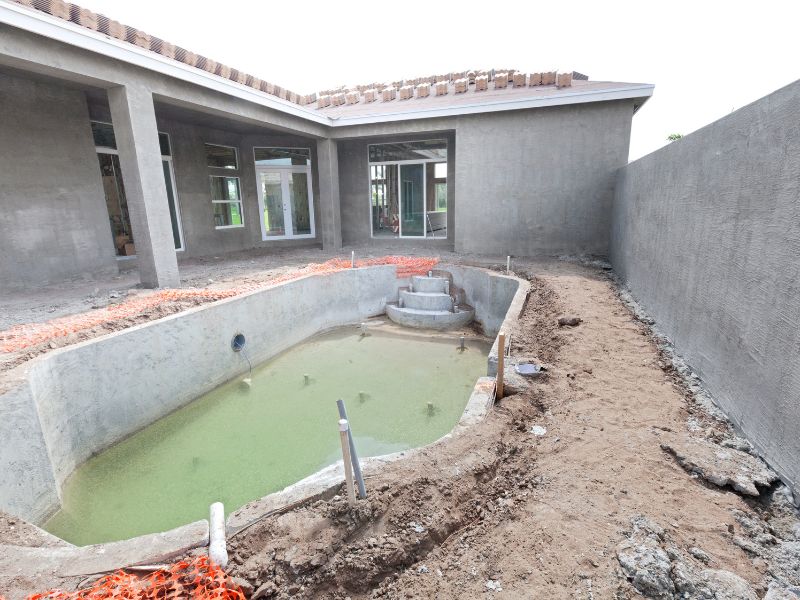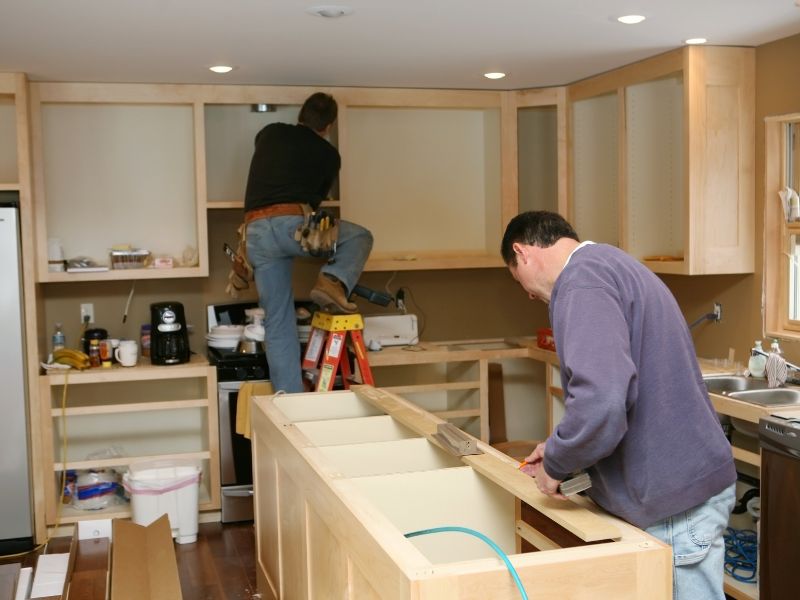 In the rapidly evolving landscape of real estate, smart homes are emerging as a transformative force, reshaping the way we live and interact with our living spaces. Automation and technology have become integral components of modern homes, offering unprecedented levels of convenience, efficiency, and sustainability. This article delves into the burgeoning realm of smart homes, exploring the impact of automation and technology on the real estate industry and the future trends that promise to redefine our concept of home.
In the rapidly evolving landscape of real estate, smart homes are emerging as a transformative force, reshaping the way we live and interact with our living spaces. Automation and technology have become integral components of modern homes, offering unprecedented levels of convenience, efficiency, and sustainability. This article delves into the burgeoning realm of smart homes, exploring the impact of automation and technology on the real estate industry and the future trends that promise to redefine our concept of home.
The Rise of Smart Home Technology
The past decade has witnessed an explosion in smart home technology, with devices ranging from smart thermostats and lighting systems to security cameras and virtual assistants. These innovations are designed to enhance comfort, security, and energy efficiency, providing homeowners with greater control over their living environments.
Integration and Connectivity
One of the key trends driving the future of smart homes is the increasing integration and connectivity of devices. The advent of the Internet of Things (IoT) has enabled seamless communication between various smart devices, creating a unified and interconnected home ecosystem. This connectivity allows homeowners to control and monitor their homes remotely, leading to increased efficiency and peace of mind.
Home Automation and Artificial Intelligence
Automation and artificial intelligence (AI) are at the forefront of the smart home revolution. Intelligent systems can learn from user behavior and adapt to preferences, automating routine tasks and creating personalized living experiences. From adjusting the thermostat to optimizing energy consumption, AI-driven automation is set to become an integral part of future smart homes.
Energy Efficiency and Sustainability
The future of smart homes is intrinsically linked to sustainability. Smart technologies play a crucial role in optimizing energy usage, reducing waste, and promoting eco-friendly practices. Energy-efficient appliances, smart HVAC systems, and solar-powered solutions contribute to both environmental sustainability and cost savings for homeowners.
Enhanced Security Features
Security is a top priority for homeowners, and smart home technology is revolutionizing the way we approach safety. Advanced security systems, including smart locks, video doorbells, and AI-powered surveillance, provide real-time monitoring and alerts. These features not only enhance home security but also offer a sense of control and peace of mind.
The Impact on Real Estate Values
As smart home technology becomes more prevalent, it is influencing property values. Homes equipped with the latest automation features tend to be more attractive to buyers and can command higher prices. Real estate developers are increasingly incorporating smart home features into new constructions, recognizing the growing demand for technologically advanced living spaces.
Challenges and Considerations
While the future of smart homes is promising, some challenges need to be addressed, such as data security and privacy concerns. As homes become more interconnected, the need for robust cybersecurity measures becomes paramount to safeguard sensitive information and protect residents from potential threats.
Redefining the Home Experience
The future of smart homes is marked by the seamless integration of automation and technology, fundamentally transforming the real estate landscape. Homebuyers and homeowners alike are seeking innovative solutions that enhance comfort, security, and sustainability.
As technology continues to advance, the smart home revolution is poised to redefine our concept of home, creating living spaces that are not only intelligent but also responsive to the evolving needs and preferences of residents.
 Real estate investing has long been considered a lucrative venture, but the common misconception is that it requires a substantial amount of capital to get started. In reality, numerous strategies allow beginners to dip their toes into the real estate market with minimal funds. We will guide aspiring investors on how to start their real estate journey with little money and build a solid foundation for long-term success.
Real estate investing has long been considered a lucrative venture, but the common misconception is that it requires a substantial amount of capital to get started. In reality, numerous strategies allow beginners to dip their toes into the real estate market with minimal funds. We will guide aspiring investors on how to start their real estate journey with little money and build a solid foundation for long-term success. Selling a home can be an exciting yet challenging endeavor and one of the most effective ways to ensure a quick and profitable sale is through home staging. Home staging is the art of presenting your property in the best possible light to attract potential buyers and create a lasting impression. In this ultimate guide, we’ll explore a variety of tips and strategies to help you stage your home for a quick and successful sale.
Selling a home can be an exciting yet challenging endeavor and one of the most effective ways to ensure a quick and profitable sale is through home staging. Home staging is the art of presenting your property in the best possible light to attract potential buyers and create a lasting impression. In this ultimate guide, we’ll explore a variety of tips and strategies to help you stage your home for a quick and successful sale. Creating a backyard oasis with a swimming pool, hot tub, or water feature can transform your outdoor space into a haven for relaxation and entertainment. However, financing such a project often involves careful planning and consideration. One popular financial option for these endeavors is a construction loan.
Creating a backyard oasis with a swimming pool, hot tub, or water feature can transform your outdoor space into a haven for relaxation and entertainment. However, financing such a project often involves careful planning and consideration. One popular financial option for these endeavors is a construction loan. Real estate has long been considered a lucrative investment, but for many, the barriers to entry can be daunting. Enter real estate crowdfunding, a game-changing concept that allows investors to pool their resources and collectively invest in property. This innovative approach has democratized real estate investing, making it accessible to a broader audience. In this guide, we’ll explore the ins and outs of real estate crowdfunding and provide you with the tools to navigate this exciting investment avenue.
Real estate has long been considered a lucrative investment, but for many, the barriers to entry can be daunting. Enter real estate crowdfunding, a game-changing concept that allows investors to pool their resources and collectively invest in property. This innovative approach has democratized real estate investing, making it accessible to a broader audience. In this guide, we’ll explore the ins and outs of real estate crowdfunding and provide you with the tools to navigate this exciting investment avenue. One might wonder if the continued increase in accessing online information about properties for sale has removed the need for working with a qualified real estate agent or broker. It has not.
One might wonder if the continued increase in accessing online information about properties for sale has removed the need for working with a qualified real estate agent or broker. It has not. If you’ve just moved into your new home and you have a pet, you may be thinking of installing a pet door. A pet door is a permanent door feature that is cut into the bottom third of an entry door. Before making a permanent alteration to your door, consider the pros and cons of installing a pet door.
If you’ve just moved into your new home and you have a pet, you may be thinking of installing a pet door. A pet door is a permanent door feature that is cut into the bottom third of an entry door. Before making a permanent alteration to your door, consider the pros and cons of installing a pet door.  When it comes to finding the perfect place to call home, the variety of property types available can be both exciting and overwhelming. The real estate market offers a plethora of options, each with its own unique features, advantages, and considerations. From the cozy solitude of a single-family home to the dynamic potential of multi-family units and beyond, understanding these property types is key to making an informed and satisfying choice.
When it comes to finding the perfect place to call home, the variety of property types available can be both exciting and overwhelming. The real estate market offers a plethora of options, each with its own unique features, advantages, and considerations. From the cozy solitude of a single-family home to the dynamic potential of multi-family units and beyond, understanding these property types is key to making an informed and satisfying choice. Kitchen remodeling projects can be exciting, but they also require careful planning and execution to avoid common mistakes that can lead to disappointment or costly errors.
Kitchen remodeling projects can be exciting, but they also require careful planning and execution to avoid common mistakes that can lead to disappointment or costly errors.  Buying a home is one of life’s significant milestones, but it often comes with a significant price tag. Fortunately, the sticker price on a house isn’t always set in stone. When buying a home, negotiating certain costs can save you a significant amount of money. Here are some costs that every homebuyer should negotiate:
Buying a home is one of life’s significant milestones, but it often comes with a significant price tag. Fortunately, the sticker price on a house isn’t always set in stone. When buying a home, negotiating certain costs can save you a significant amount of money. Here are some costs that every homebuyer should negotiate: